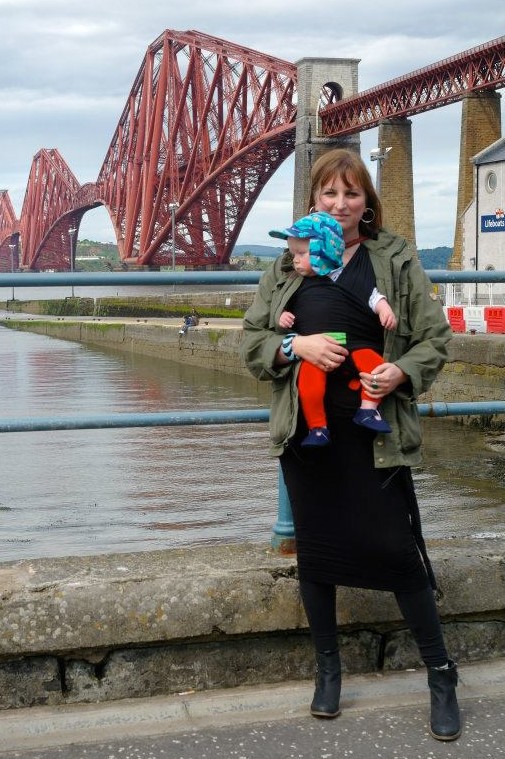What collaborative or participatory research offers…
- Written by: Kerry Musselbrook — Iriss — Project Manager
- Published: 8th May 2019
Collaborating for Impact. The difference third sector and academic research partnerships can make.
More collaborative and participatory approaches to research is something that I think we need more of – combining the strengths of academic or ‘professional researchers’ and people with lived experience. It makes for better research and greater application and impact, I think.
The third sector can be a useful route to involving people with lived experience in research and evidence production, either as user-led organisations themselves or through their community links.
Let’s be clear on what collaborative and participatory approaches offer. For one, involving people traditionally seen as ‘ subjects’ of research as active agents, shaping the agenda/research questions, the inquiry process and (ideally) subsequent recommendations and actions, with potential for co-delivery of these. This recognises their expertise as partners in ‘all of it’ and contributes to more active democracy and better use of evidence.
Participatory research in particular has potential to bring in marginalised and unheard groups to inform and influence policy and practice, albeit this remains a challenge. If research depends on funding, then funders have a large part to play in determining what is funded – and whose agenda, voices and ideas are heard! We need more programmes like the DRILL one. Disability Research on Independent Living and Learning is an innovative 5 year UK-wide Programme which will end August 2020. It’s led by disabled people, for disabled people and funded by the National Lottery Community Fund (NLCF), promoting coproduction and collaboration between disabled people and their organisations, academia, research bodies and policy makers.
So, to end…I began my career as traditional ‘expert’ researcher in the social sciences. However, time, experience and reflection have challenged lazy and easy notions around researcher neutrality and objectivity that uphold: either too privileged a position for the researcher – the one who analyses and authors any ‘recommendations’ responding to a funder’s agenda; or connected to that, too ineffectual a position! It’s not quite as simple as all that, of course, but you get my drift….
Come along to the Third Sector Research Forum conference (this link will take you away from our website) on the 9th October, to be inspired and learn from others who are using collaborative approaches to achieve real impact!
Find out more and read Louise Bowen’s piece on How to get involved in the Third Sector Research Forum conference.
End of page.
You may also like:
Dr Hannah Tweed discusses the inclusive communications campaign the ALLIANCE launched in early 2025, and how you can get involved.
Continue readingCarola, disability and mental health advocate, shares her thoughts on the current state of mental health services in Scotland.
Continue readingIt’s time for an open conversation about the value of community health organisations and how we, as a sector, respond to changing demands.
Continue readingSara discusses how truly listening and acting on what we hear is the only way that true and real change can be made.
Continue readingReflection is key to making long-term change; but is the recent period of reflection by the government enough to drive this action?
Continue readingALLIANCE Chief Officer, Sara Redmond, shares her thoughts and reflections on the recent open letter to the First Minister.
Continue readingWhat does the new National Transitions to Adulthood Strategy for Young Disabled People mean for young people with learning disabilities?
Continue readingGail Cunningham, a retired GP and Project Manager at LTCH tells us just how much self management has changed her life.
Continue readingSelf Management Network Scotland member Hilda shares self management resources ahead of Self Management Week 2025.
Continue readingALLIANCE Chief Officer, Sara Redmond, shares her thoughts on leading courageously in creating long term societal change.
Continue readingWe met inspiring young carers and shared how ALISS can help them to find local support for health, wellbeing and caring needs.
Continue readingJoanne McCoy on the collaborative process of self management and what she needs to lead in the management of her health.
Continue readingNew approach to services puts person at centre of care.
Continue readingALLIANCE Member Danielle tells us what she needs to lead as part of our self management awareness raising campaign for 2025.
Continue readingSelf Management Network Scotland member Caroline Brocklehurst tells us what she needs to take the lead in managing her health.
Continue readingMar Sánchez Fernández reflects on the importance of collaboration between the third sector and academia.
Continue readingReflecting on key messages from the ACRC Symposium.
Continue readingCould parkrun make you or your community healthier and happier?
Continue readingGrace Beaumont looks to the Principles of Self Management as inspiration for this year’s Self Management Week awareness raising activity.
Continue readingNan McKay Community Hall is a welcoming space in Pollokshields where community, health, and wellbeing come together.
Continue readingLouise shares her thoughts on the need for a statutory right to lifelong, independent advocacy.
Continue readingALISS is supporting GCHSCP's work to help people live independent lives by connecting them to support in their local community.
Continue readingKairos Women+ share the vital foundations of their creative anti-stigma work with women.
Continue readingToo many carers simply cannot make ends meet, but a Minimum Income Guarantee could be the solution.
Continue readingNational Stalking Awareness Week 2025, from 21-25 April, will focus on healthcare professionals spotting the signs of stalking.
Continue reading
